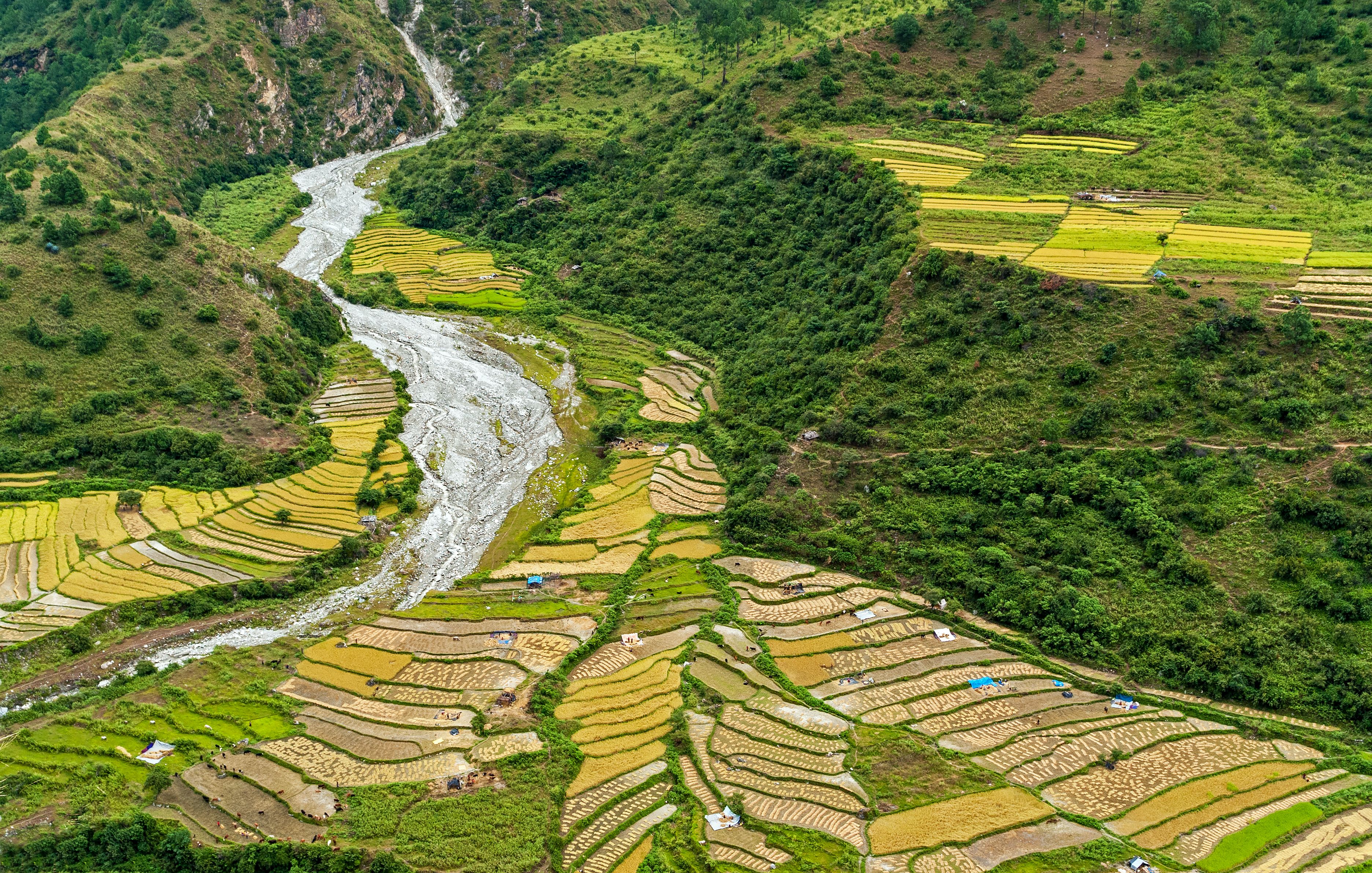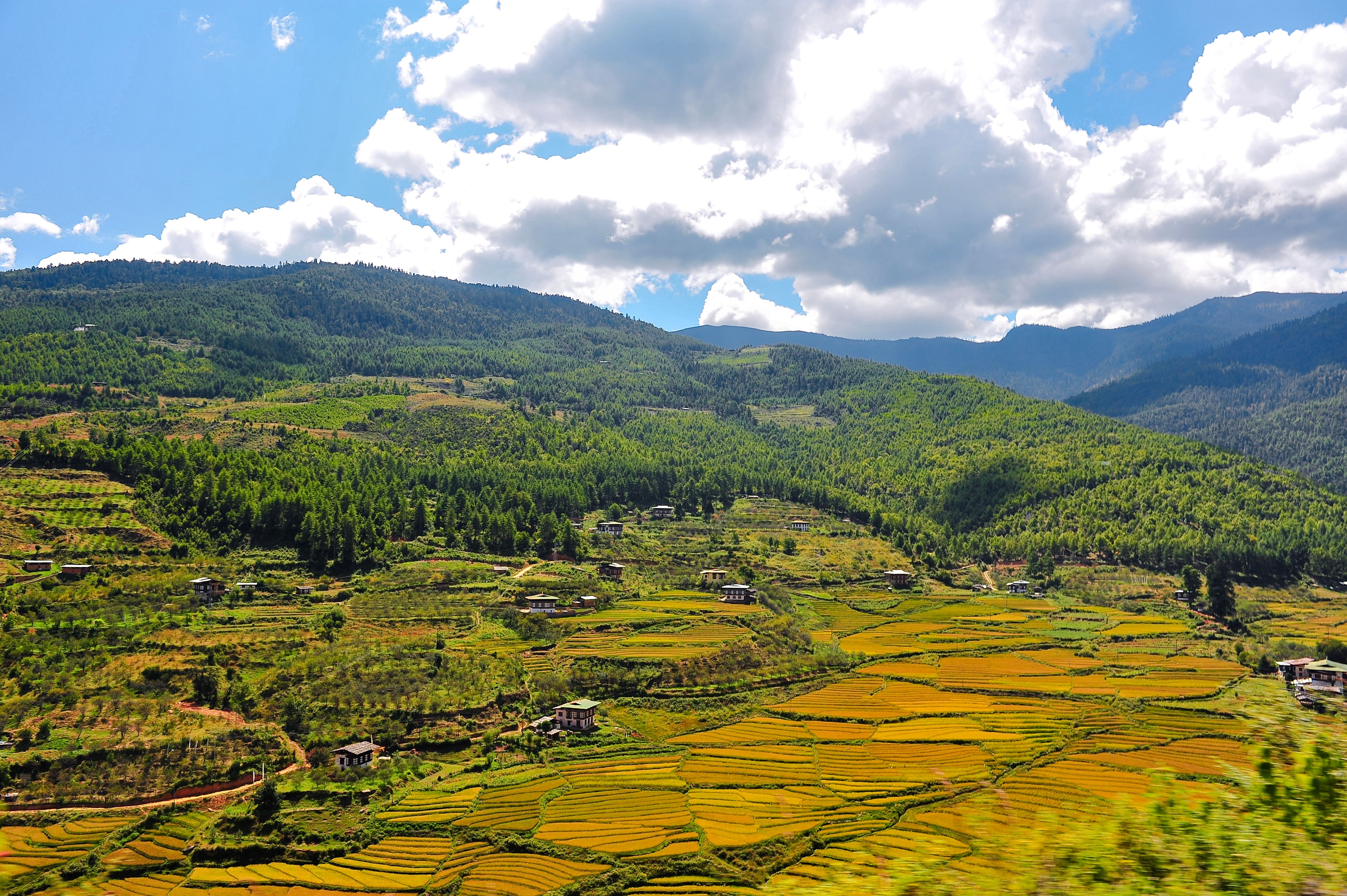The Unique Self-Sufficiency of Bhutan's Food System
Introduction to Bhutan's Food System
Bhutan, a small Himalayan kingdom, is renowned for its commitment to preserving its rich cultural heritage and environment. Among its many achievements, Bhutan's food system stands out as a model of self-sufficiency and sustainability. This unique approach not only ensures food security for its population but also aligns with the nation's philosophy of Gross National Happiness.

The Core Principles of Bhutan's Agriculture
Bhutan's agricultural practices are deeply rooted in traditional methods that emphasize harmony with nature. The country primarily relies on organic farming techniques, avoiding the use of chemical fertilizers and pesticides. This approach not only preserves the soil's fertility but also safeguards the health of its people.
Another core principle is the promotion of crop diversity. Farmers in Bhutan grow a wide variety of crops, including rice, maize, and vegetables, which helps in maintaining biodiversity and ensuring a balanced diet for its citizens. The government encourages the cultivation of indigenous crops that are adapted to the local climate, further enhancing resilience against adverse weather conditions.
Community Involvement and Traditional Practices
Community involvement plays a crucial role in Bhutan's food system. Farming is often a communal activity, where families and neighbors come together to plant and harvest crops. This tradition not only strengthens social bonds but also fosters a sense of collective responsibility towards food production.
Traditional practices such as crop rotation and intercropping are widely employed, contributing to soil health and pest control naturally. These age-old techniques have been passed down through generations, demonstrating the wisdom embedded in Bhutanese culture.
Government Support and Policies
The Bhutanese government plays an active role in supporting its food system through various policies and initiatives. It provides subsidies for organic farming inputs and offers training programs to educate farmers on sustainable practices. Additionally, the government has implemented measures to protect local markets from the influx of foreign produce, ensuring that domestic farmers receive fair prices for their goods.
Land ownership policies also favor small-scale farmers, promoting equitable distribution of land resources and encouraging the younger generation to engage in agriculture as a viable livelihood.

Challenges and Future Prospects
Despite its successes, Bhutan's food system faces several challenges. Climate change poses a significant threat to agricultural productivity, with unpredictable weather patterns affecting crop yields. Additionally, rural-urban migration is leading to labor shortages in farming communities.
However, Bhutan is proactively addressing these issues through innovation and adaptation. The government is investing in research to develop climate-resilient crop varieties and exploring modern technologies to enhance productivity without compromising sustainability. These efforts aim to ensure that Bhutan's food system remains robust and resilient in the face of future challenges.
Conclusion
Bhutan's unique approach to self-sufficiency in its food system is a testament to its commitment to sustainable development and cultural preservation. By blending traditional practices with modern innovations, Bhutan offers valuable lessons for countries worldwide seeking to achieve food security while respecting their cultural heritage.
Commercial Kitchen http://avice.org
